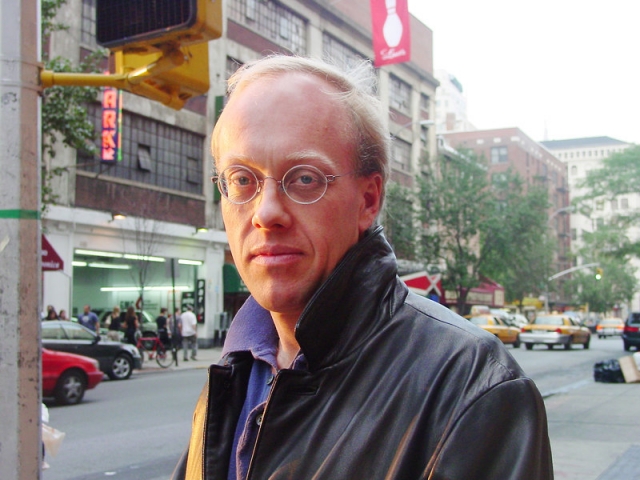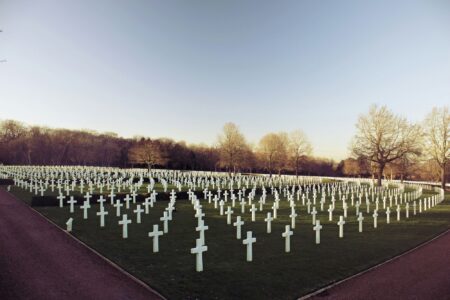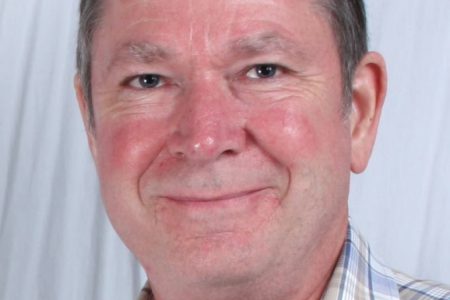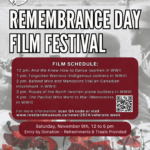Truth, Terror and Consequences with Chris Hedges
Through his lectures, Chris Hedges takes people on dark journeys to places they thought they would never go. Painting pictures with words, he acts as a tour guide to the realities of war and those who choose to accompany him will return with a better understanding.
On February 28, the Selkirk College Mir Centre for Peace Lecture Series welcomes the Pulitzer Prize award winning journalist, author and activist to Castlegar’s Brilliant Cultural Centre. Currently an educator and columnist for Thurthdig, Hedges will dive deep into the world he has witnessed for more than two decades.
“I spent 20 years as a war correspondent,” Hedges said when asked about the topic of the lecture. “It’s about the poison of war, the culture of war and what it does to individuals and societies in all the various conflicts that I covered. That dark lust for violence, that capacity for evil that we all have.
“In a time of war when a culture is gripped by war, the death instinct becomes dominant. I think what most people don’t understand about it is how seductive it is. I will be drawing on various experiences I had in various conflicts to talk about the nature of war and what it is.”
From the Streets of San Salvador
Hedges pathway to respected journalist started early. He had his first article published when he was 13 and by college had his work featured in the Christian Science Monitor.
As the son of controversial American Presbyterian minister Rev. Thomas Hedges who was involved in the civil rights movement, the anti-war movement and the gay rights movement, after high school Hedges chose to follow in his father’s footsteps.
While working on his studies at the Harvard Divinity School, Hedges became disenchanted. He decided to focus on shedding light on some of the darkest places in the world through journalism. By 1984 he was the Central America bureau chief for the Dallas Morning News.
“I was propelled to places like El Salvador more because of the egregious human rights violations with the death squads killing between 700 and 1,000 people a month when I got there,” Hedges says.
Over the next 20 years Hedges reported on some of the most horrific and dramatic conflicts across the globe: the Falklands War, the first Gulf War, Palestinian uprisings, civil wars in Yemen and Algeria, Bosnia, and many others.
Working as the New York Times Middle East correspondent, Hedges went in with the US Marines First Battalion to Kuwait, was in Basra during the Shiite uprising and was taken prisoner by the Iraqi Guard for 10 days before being released to the International Committee of the Red Cross.
“In order to go out and report on what was happening in the middle of a conflict, it did become dangerous,” Hedges says of his years on the frontlines. “A lot of people I worked with over two decades are dead. Motives are always are mixed and they are not pure, you become addicted to those kinds adrenaline highs. Soldiers and marines call it a combat high, it’s very real and becomes very hard to function in a world not at war.
“To a certain extent the danger had a kind of appeal, but in the moments where I actually thought I might die there was nothing attractive about it. It was quite frightening.”
Outspoken Views and Tarnished Awards
When al Qaeda attacked the United States on September 11, 2001 Hedges was based in Paris. Over the next year, he worked with other New York Times reporters to shed light on global terrorism. In 2002 he was part of the New York Times team that won the Pulitzer Prize for their coverage.
“It did nothing for me,” Hedges says of the honour. “I have been in the profession so long that I have seen brave reporters never win prizes and I have seen crappy reporters win Pulitzers. I had done reporting long enough to be pretty jaded about prizes. I know who great reporters are and I know what great reporting is, I have seen how that reporting is often never given a prize at all because it’s too disturbing to the centres of power and the committees that give prizes don’t want to go there.”
On the eve of the invasion of Iraq, Hedges released his book War Is a Force that Gives Us Meaning. He became an outspoken critic of the invasion appearing on programs like Charlie Rose to let the world know that the move would lead to disastrous consequences. After being on the ground in the Middle East for so many years prior to the 9/11 attacks, Hedges says he knew the United States would not be greeted as liberators in Iraq and there were no stockpiles of nuclear weapons to justify the invasion.
“I was heard,” Hedges says of his outspoken views. “Not many people heeded it, but I was heard.”
In 2003 Hedges was invited to be the commencement speaker at Rockford College in Illinois. During a heightened time in America, Hedges told the assembled crowd and graduates of his concerns about the Iraq conflict. He was eventually booed off stage and video of his speech spread on the internet. The New York Times issued him a formal written reprimand which Hedges says stated he would be fired if he continued to speak about the Iraq War. Hedges made the decision to leave the newspaper rather than be silenced.
Though Hedges doesn’t regret his decision, he says that period of his career was difficult.
“You can’t be a newspaper reporter for as long as I was and be particularly surprised by too much,” he says. “The only thing that surprised me was the level of anger because I received so many death threats. I was surprised that people would threaten me over that stance.”
Not Shying Away from the Truth
Hedges post-New York Times career has continued to build and he has established himself as one of the leading voices of change in the United States.
He writes a weekly column for Truthdig, the online newspaper that promises to “drill beneath the headlines” and has written more books. Hedges was the speech writer for 2008 presidential candidate Ralph Nader and has publically supported the Green Party of the United States.
In November, 2011, Hedges was arrested with others in New York as part of the Occupy Wall Street demonstration. He was heavily involved in the movement, authoring the first issue of The Occupied Wall Street Journal.
“The democratic system in the United States is broken down,” Hedges says of his motivation to join Occupy. “It has essentially undergone a corporate coup d’etat in slow motion. Unless we rebuild mass movements we are not going to have any way to push back. I think mass, non-violent movements that begin to put pressure on the centres of power are probably all we have left.”
Now 57, Hedges continues to speak all across the world in events like the Mir Lecture Series. He is unapologetic to those who disagree with him and doesn’t shy away from taking audiences to dark places.
“I don’t share America’s mania for hope,” he says. “I was a war correspondent. People who were too overly optimistic or pollyannaish about the world didn’t live too long in war zones. You have to make a very cold assessment of what the forces are around you and the capacity of those forces to do you harm and react. How can you read climate change reports and be hopeful? That’s not part of my vocabulary. I battle against forces because they are wrong and because they perpetuate immense suffering and justice… not because I’m necessarily going to win.”
Tickets for the Mir Lecture are available at the Selkirk College Bookstore in Castlegar, Otter Books in Nelson and at the door ($16 for the general public and $13 for students/seniors). The February 28 lecture starts at 7 p.m. at the Brilliant Cultural Centre (1876 Brilliant Road).



























Comments